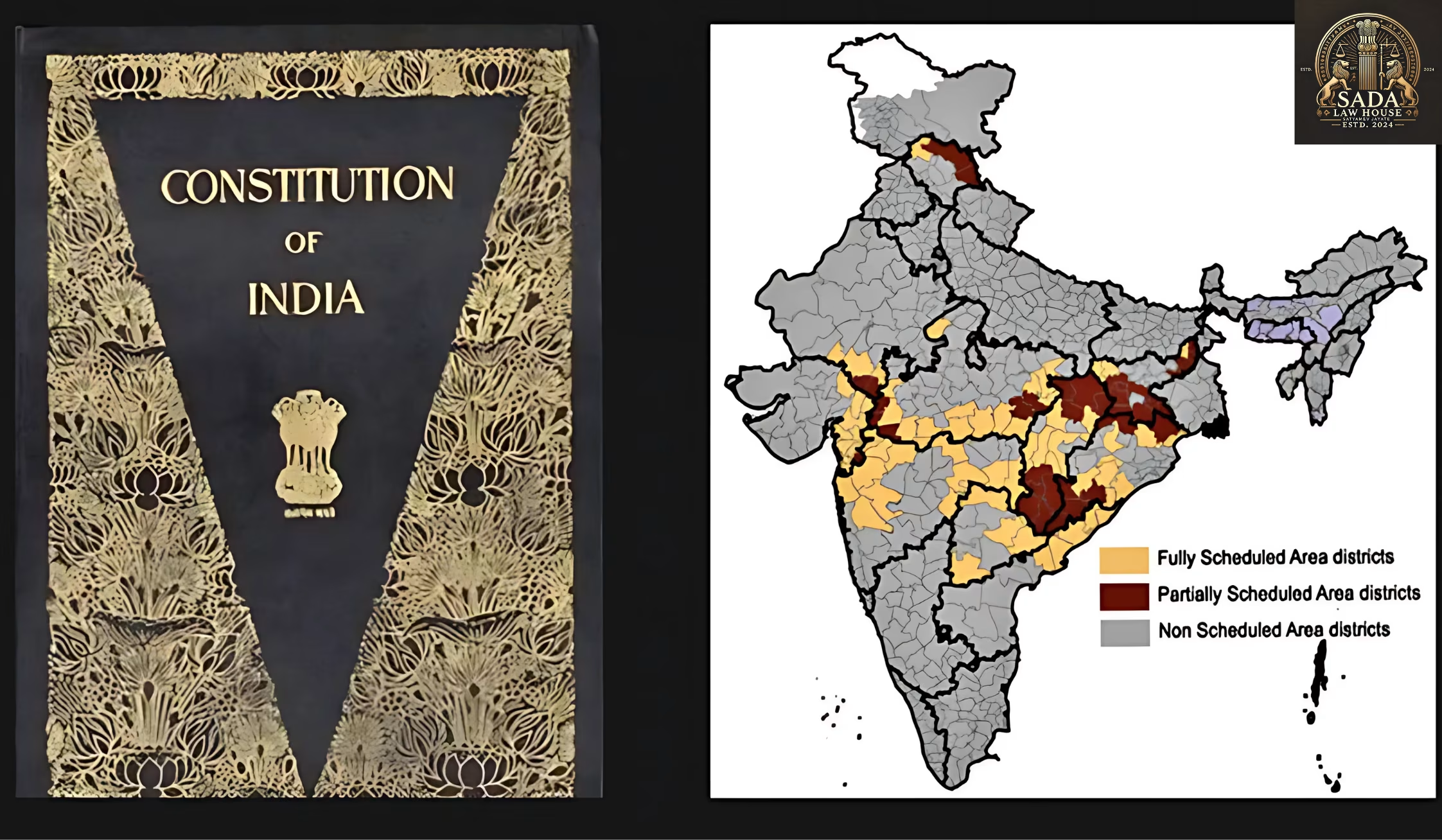Legal Rights of Non-Tribals in Scheduled Areas: Supreme Court’s Verdict in Adivasis for Social and Human Rights Action v. Union of India (2023)
- NITU KUMARI
- 12 May 2025

Explore the landmark Supreme Court judgment in Adivasis for Social and Human Rights Action v. Union of India (2023), clarifying the rights of non-tribals in Scheduled Areas, the role of the Governor, and the applicability of state and union laws.
Introduction: Understanding Scheduled Areas and Tribal Rights
Scheduled Areas in India are designated under the Fifth Schedule of the Constitution to safeguard the interests of Scheduled Tribes (STs). However, questions have long been raised about the rights of non-tribal communities, particularly concerning settlement, voting rights, and the applicability of state and union laws in these regions.
This issue came to the forefront in the Supreme Court case: Adivasis for Social and Human Rights Action v. Union of India, decided on May 10, 2023.
Case Background: Adivasis for Social and Human Rights Action v. Union of India
Facts of the Case
In 1977, the President of India declared the entire Sundargarh district in Odisha as a Scheduled Area under Clause 6(2) of the Fifth Schedule.
The petitioner, a society advocating for tribal rights, argued that only Scheduled Tribes should have the right to reside and vote in these areas.
It also claimed that unless the Governor issued a specific notification under Clause 5(1) of the Fifth Schedule, state or central laws could not be automatically applied to Scheduled Areas.
The High Court of Orissa dismissed the petition, leading to an appeal before the Supreme Court of India.
Legal Issues Raised
Key Questions Before the Court:
Can Union and State laws apply in Scheduled Areas without a Governor’s notification?
Do non-tribals have the right to settle in Scheduled Areas?
Can non-ST individuals vote or contest elections in Scheduled Areas?
Supreme Court Judgment: Upholding Constitutional Rights
Applicability of Laws
The Supreme Court held that Union and State laws apply by default in Scheduled Areas unless the Governor issues a notification under Clause 5(1) of the Fifth Schedule.
Right to Settle in Scheduled Areas
Relying on Article 19(1)(e) of the Constitution, the Court emphasized that every Indian citizen—including non-tribals—has the right to reside and settle anywhere in the country.
Voting and Electoral Rights
The Court ruled that the Representation of the People Act, 1950 governs voting rights and does not restrict non-tribals from voting in Scheduled Areas.
Reservations for STs apply only to specific constituencies, as per Articles 330 and 332 of the Constitution and the Delimitation Act, 2002.
Governor’s Powers vs. Fundamental Rights
While the Governor has special powers under the Fifth Schedule, these powers cannot override Fundamental Rights guaranteed in Part III of the Constitution. The Court cited the precedent of Chebrolu Leela Prasad Rao v. State of Andhra Pradesh, reiterating that:
All Union and State laws remain applicable unless the Governor states otherwise.
The Governor’s authority must comply with constitutional provisions and fundamental rights.
Conclusion: A Balanced Approach to Tribal and Non-Tribal Rights
The Supreme Court’s ruling promotes a balanced governance approach in Scheduled Areas. It affirms:
The constitutional rights of non-tribal communities.
The limited and regulated use of the Governor’s discretion.
The importance of inclusive democracy respecting both tribal interests and individual freedoms.
Key Takeaways
Scheduled Areas are governed by state and union laws, unless modified by the Governor.
Non-tribals have a constitutional right to live and vote in Scheduled Areas.
The Governor’s powers under the Fifth Schedule are not absolute and must align with Fundamental Rights.
Case Laws






